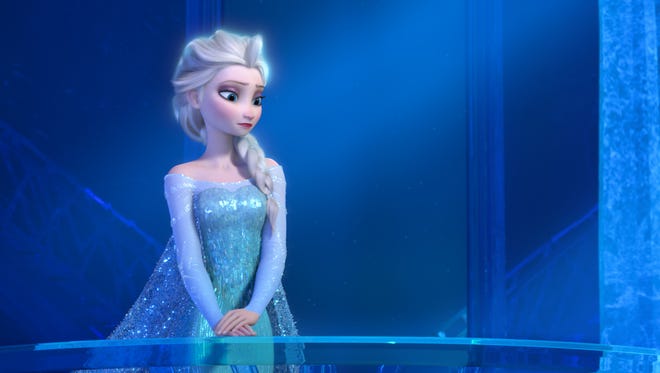Disney plans stand-alone streaming service, pulling films from Netflix in 2019
 Mike Snider
Mike Snider
Walt Disney made a big digital move Tuesday, announcing a new direct-to-consumer streaming service to compete with Netflix — that will cut Netflix out of much of its content mix.
The new Disney-branded subscription service, expected to launch in 2019, will be the exclusive home for new animated and live-action theatrical Disney and Pixar films.
Whether films in the Star Wars and Marvel franchise will appear on this new service is undetermined, said Disney Chairman and CEO Robert Iger in a conference call about the company's third-quarter financials with analysts Tuesday.
"The disposition (of those films), we have not determined yet," and they could be licensed to "a pay service such as Netflix," Iger said. Disney could also start separate direct-to-consumer streaming services devoted solely to either the Star Wars or Marvel franchises, he said.
Shares of Netflix (NFLX), which in 2016 began a multi-year deal for Disney's films, took an immediate hit after the Disney broke the news, declining about 4% to $171.80. Netflix will continue to have all access to Disney films including new theatrical releases in 2018 through the end of 2019, the streaming provider said in a statement Tuesday.
"We continue to do business with the Walt Disney Company globally on many fronts, including our ongoing relationship with Marvel TV," the company said.
Kicking off with Disney's scheduled 2019 releases currently include Frozen 2, Toy Story 4 and a live-action version of The Lion King, the new as-yet-unnamed or unpriced service will be "unlike anything else in the market," Iger said. "These announcements mark the beginning of an entirely new growth strategy for the company."
Disney (DIS) shares also fell 4% to $102.70.
The studio also announced that its multi-sport ESPN subscription streaming service would launch in early 2018. That service, in its first year, would have about 10,000 live sports events including Major League Baseball, National Hockey League, Major League Soccer, tennis and college sports.
Disney also said it would spend $1.58 billion for a 42% stake in streaming tech company BAMTech, a division of Major League Baseball Advanced Media. Originally launched in 2000, the MLB's interactive media and Internet company was created to run the league's team websites. It has grown to runs streaming services for HBO, WWE, NHL and PGA Tour.
Last year, Disney paid $1 billion for its initial 33% stake in BAMTech and now owns 75% of the company.
These moves into digital distribution and online technology will give Disney more flexibility and increased control over its own future, Iger said. And those moves allow the company to learn more about what its consumers want -- and how to cater to them, he said.
"We have got this unbelievably passionate base of Disney consumers worldwide and (in) virtually all of our businesses, except theme parks, we have never had the opportunity even to connect with them directly or know who they are," Iger said. "It is high time we got in the business, particularly with the technology available to us, to accomplish that."
Standing pat was not an option, he said. "The profitability (and) the revenue-generating capability of this initiative is substantially greater than the business models that we are currently being served by," Iger said.
During the third quarter, revenue Disney's theme parks and resorts rose 12% over the previous year to $4.9 billion, the company said. But media networks' revenue fell 1% to $5.9 billion. Cable network revenue, driven by higher programming costs at ESPN -- and lower ad revenue and lower average viewing for the sports giant -- resulted in lower operating income of $1.5 billion, down 23%.
Disney reported total third-quarter revenue of $14.2 billion, compared to $14.3 billion a year ago. That missed expectations of $14.4 billion from analysts polled by S&P Global Market Intelligence.
Earnings per share of $1.51 fell short of the $1.55 expected.
Net income of $2.37 billion fell nearly 9% compared to $2.6 billion a year ago. Analysts had expected $2.45 billion.
Follow USA TODAY reporter Mike Snider on Twitter: @MikeSnider.